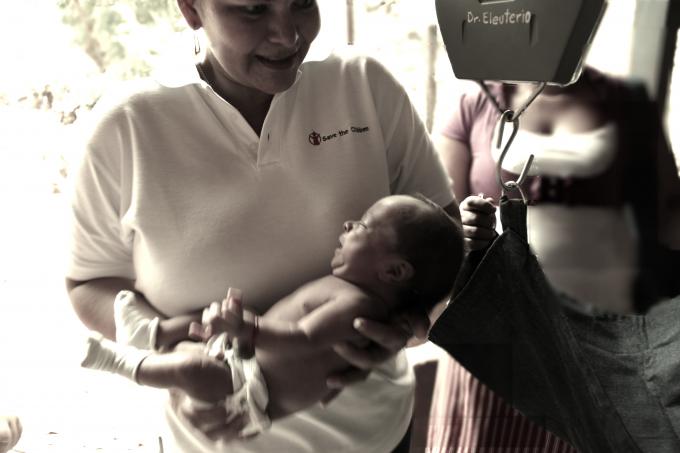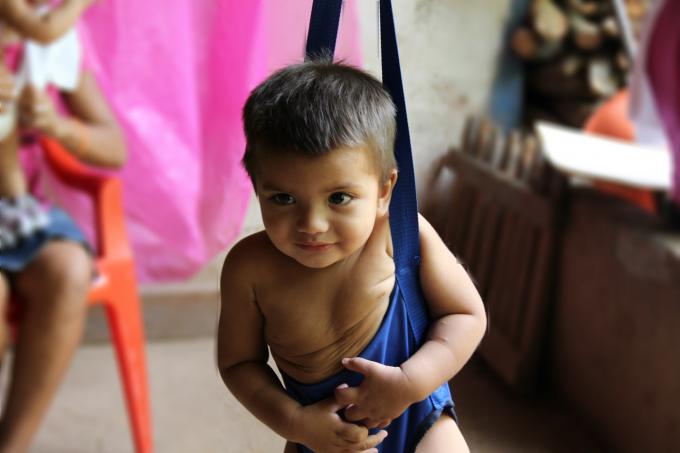 Nicaragua
Nicaragua
Languages
Children in remote communities receive medical care
- Save the Children and Ministry of Health care for children under five.
- 3,852 children were attended by the community health workers in isolated communities.
05.03.2015 Managua, Nicaragua. Andrea Núñez-Flores Rey
More than 3,850 children under five years old were attended to for penumonia, diarrhea and dysentery in 120 communities of Nicaragua under the Community Case Management (CCM) strategy. This program is implemented by Save the Chidren in conjunction with the Ministry of Health (MOH).
The aim of the program is to ensure that people living in remote communities have access to health services with the help of volunteers that form the health brigade. The community health workers, chosen from the community itself, are trained to help and support the health needs of women and children under five.
María Lourdes, a community health volunteer of the isolated community Pavón, in León, explains “before the health brigades arrived, we had to walk carrying the babies for three hours or ride (15 km on a very winding dirt road ) and then go by bus to Leon which takes about an hour. When my eldest son was a baby, he almost died one day because he had a strong asthma attack and hardly arrived on time; we were desperate because we could not walk faster. This was the worst day of my life.”
The program began in 2007 and in just seven years it has shown great results. By 2012, infant mortality (mortality of children under 12 months old) in communities with the CCM program was 14% lower than in communities without CCM.
In 2014, there has been a reduction in overall malnutrition (weight/age) among 3,218 children and an increase in the coverage of children under 2 years of age who receive three doses of the pentavalent vaccine. Infant mortality continues to decrease in CCM intervention areas, according to MOH data.
María Lourdes assures that “the things would have been different if CCM volunteers had already been here, as we treat pneumonia, fever, diarrhea... common childhood diseases. We identify the disease and give treatment. We also do controls of length-weight sessions with children. People come from nearby communities because we are available every day, at any time. Furthermore, now there are community health workers for Birth Planning.”
The MOH provides medicines, supervise the members of the brigades and trains community health workers with support from Save the Children, which creates protocols, approach guides, materials, among other actions.
María Lourdes keeps explaining: “I started because this caught my attention and I wanted to help the community, and I like it because it is something beautiful and valuable. When trainings started, I already had my two older children. I had to give birth at home, but my little boy was born in the hospital and health workers using Birth Planning supported me during the last pregnancy.”
Overall, the CCM program has been very popular in participating communities as the community health workers have been saving children’s lives and helping mothers know what’s best for their children.

